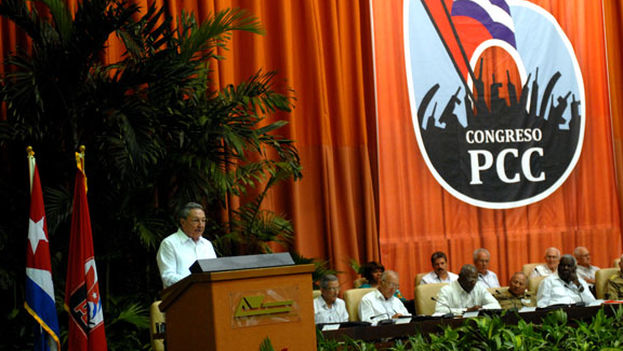
![]() 14ymedio, Havana, 15 January 2016 — Five years after approval, at the Sixth Party Congress, of the Political, Social and Economic Policy Guidelines of the Cuban Communist Party (PCC), the Party just admitted that it has only implemented 21% of the planned reforms.
14ymedio, Havana, 15 January 2016 — Five years after approval, at the Sixth Party Congress, of the Political, Social and Economic Policy Guidelines of the Cuban Communist Party (PCC), the Party just admitted that it has only implemented 21% of the planned reforms.
At a plenary session this week of the PCC’s Central Committee, which was not previously announced, PCC leaders evaluated the results of the “updating of the socialist model,” enacted in 2011. They recognized that some of the measures implemented in the last five years “still have had no real impact on the family budget.”
Between congresses, the highest body of the PCC also analyzed several documents during the session, presided over by Raul Castro. The “2030 Economic and Social Development Program” was presented, which contains the “proposed vision of the nation” for the next fifteen years and defines the axes, objectives and strategic sectors that will shape the direction of the country.
According to the Party-run Granma newspaper, the development program is aimed at solving the structural problems of the economy, “starting with government policies with a comprehensive and sustainable focus that respond to a strategic and consensual vision of the medium and long term.”
Many analysts suggest that the updates of the economic and social model seem to have peaked after modest openings in the economy to private initiative and the easing the rules for foreign investment, as well as allowing Cubans to travel abroad and to buy and sell homes.
The 7th Congress will be held this April in a very difficult regional context for Cuba, as a result of the landslide victory of the opposition in legislative elections in Venezuela. There is now the risk of a cut in the enormous oil subsidies that South American country sends to the island, in the name of political solidarity. On the other hand, this meeting will be the first for Cuban communists after the reestablishment of relations with the United States.
